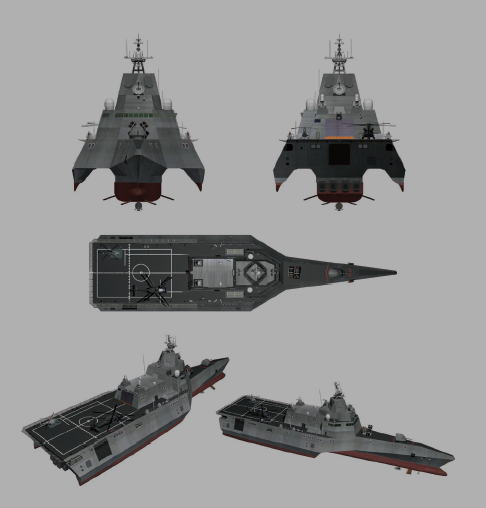United States Guardian Marines
When the bombs fell, Guantanamo Bay Naval Base suffered some damages, but a chunk of the naval forces were on assignment in the North Atlantic ocean. When they returned to the US, they found nothing but destruction and devastation and great amounts of radiation. When they found Guantanamo Bay, it was the least damaged of the American naval bases in their vicinity and here they would resupply and reorganize.
As the years passed, the hope of contact with the US Government disappeared, and they settled on a more permanent basis in the naval base, attempting to rebuild most infrastructure. As their supplies ran out they began expeditions to gather food and other resources in Cuba, and it was here they found small settlements of survivors. After some initial hostilities, they finally came to agreements with several of the settlements, and these settlements began providing supplies of their own production in return for the protection of the US Navy. As the United States was dead, the group eventually renamed themselves to the Guardians, but complains from the Marines forced another name change to the United States Guardian Marines, often commonly called the Guardians or the Marines.
Over the years their once modern and well-made ships began to become more and more difficult to maintain. Eventually a decision was made to make newer and better ships, requiring less maintenance. The second generation ships are starting to become harder to maintain and the third generation of ships is on the drawing board.
Originally led by a few captains of the US Navy, they maintain the hierarchy, but the leader has become the highest naval title, Admiral, supported by a Rear Admiral and a Fleet Captain. Each ship is led by a Captain, and under them is a number of other officers and NCOs. The military arm of the Guardian Marines is the Marine Corps, also led by a captain.
Admiral Jacob Cobb
Admiral Cobb is the current admiral of the Guardian Marines. After a couple of decades as first executive and later commanding officer of USS Boston, he was promoted to Fleet Captain, and a few years later the previous rear admiral had to retire at the age of 62 due to health issues. When Admiral Hayes died 4 years ago at the age of 71, Cobb was automatically promoted to the new Admiral.
His family had a history of being part of the navy long before the war, with participations in wars back to second world war. He favors others from the 'naval bloodlines', similar to his predecessors, and feel that many has tainted their lines with marrying native cubans into their families over the last few hundred years. Fortunately mostly he deals with the highest ranking officers, and these are all from naval bloodlines, something which does once in a while create discontent, when some of the more talented people are overlooked, simply because their father, mother, grandfather or grandmother was not american.
Ships
Only little progress has been made in the naval technology since before the war. Fortunately much technology existed before, and it is simply this that has been adapted by the Guardian Marines.
While the initial fleet consisted of a diverse number of ships of various sizes, the small size of the faction forced them to be creative when it came to the second generation of ships. New ships were built to be Littoral Combat Ships, with little fixed equipment and much space for adaptable modules, allowing ships to change configuration when docked. They are built small to avoid a necessity for a large crew, typically being crewed by around 50, which includes the mission crew. Through their design they are made to be able to be in shallow water and their speed is also remarkable.
Advantages: Fast, maneuverable, adaptable, small, sturdy for their size, high firepower
Disadvantages: Need to hunt larger targets as pack, quite expensive










